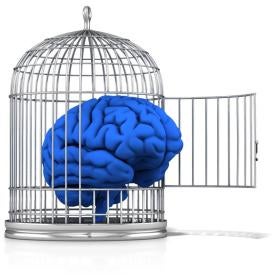A new study published in the Annals of Neurology has found that TBI patients’ brains were estimated to be older than their chronological age, “suggesting that TBI accelerates the rate of brain atrophy.”
It is well accepted that with the use of neuro imaging, it is possible to predict age in healthy individuals. The study therefore looked to see what effect, if any, a traumatic brain injury would have on accelerated atrophy of the brain.
The researchers studied 99 patients with persistent neurological problems after traumatic brain injury and compared them with a group of a 113 healthy controls assessed on the same scanner to validate the accuracy of the age prediction model. All of the patients were scanned at least one month post injury with a range of 1 to 563 months. Of the 99 patients, 17% were classified as mild, and 83% being moderate to severe. The cause of injury was included to those injured in motor vehicle accidents, falls, assaults, sport related injuries as well as other causes.
The study found that their model was able to accurately predict chronological age for the control test data. TBI patients, however, showed an increased predicted age difference when compared to the controls. “The discrepancy between predicted and chronicle age was related to the severity of injury. Patients with a moderate/severe classification showed increased mean predicted age difference, whereas mild patients were not significantly different from controls.”
The researchers also assessed whether the mechanism of injury affected brain aging. The patients who suffered TBI due to motor vehicle accidents, assaults, or falls all showed increased mean predictive age difference “indicating that TBI patients’ brains appeared to be older, irrespective of the cause of injury.”
The researchers concluded:
TBI produces a pattern of structural brain changes that affects the apparent brain age of both gray matter and white matter. The predictive model we generated was highly accurate at estimating chronological age in healthy participants, based only on the appearance of T1 MRI scans. In contrast, following TBI, the model estimated brain age to be on average greater than four years older than the patient’s chronological age. This discrepancy was only seen in patients with more severe injuries, was independent of the mechanism of injury, and was predictive of cognitive impairment. These results support the theory proposed by Moretti and colleagues that TBI may hasten the aging process and is in keeping with long-term structural and functional brain abnormalities reported in neuro imaging and neuro pathology studies of TBI patients. As predicted, the degree of apparent aging reflects the severity of injury. In contrast to moderate/severe TBI, patients with minor TBI showed no brain atrophy. This suggests that a significant biomechanical force is necessary to trigger ongoing neuro degenerative processes that lead to progressive atrophy.
The cite to the study is: Prediction of brain age suggests accelerated atrophy after traumatic brain injury. James H. Cole PhD*, Robert Leech PhD and David J. Sharp PhD. Annals of Neurology Volume 77, Issue 4, pages 571–581, April 2015. Here is the link to the article.



 i
i

